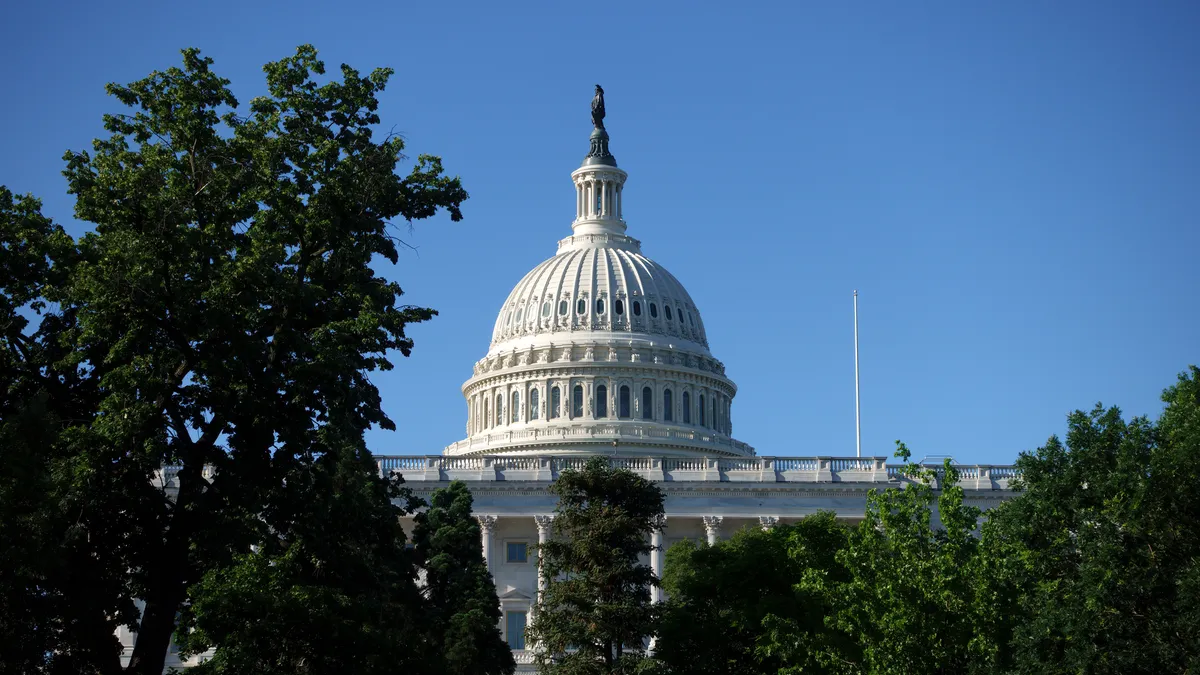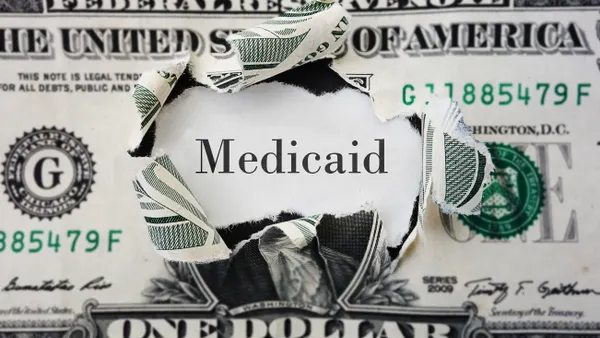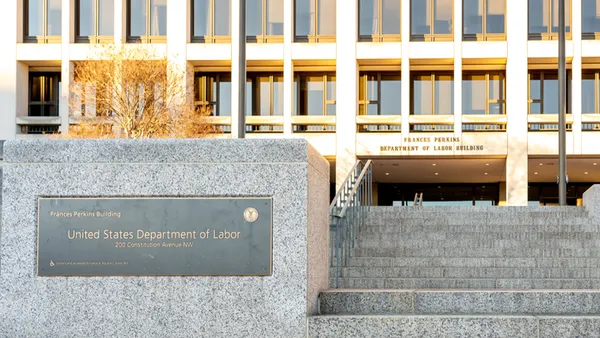Dive Brief:
- Democrat governors are entreating Congress to extend more generous subsidies for plans on the Affordable Care Act exchanges before they expire at the end of the year.
- In a letter sent Monday to House and Senate leadership, 18 blue state governors pointed to a looming affordability cliff for millions of Americans who are only able to buy insurance because of the expanded tax credits.
- And there’s less time to act than lawmakers might think, the letter warns. Insurers are already locking in rates for 2026, so the longer Congress delays the less time the market will have to adjust — and the greater chance that Americans will face prohibitive premium hikes, the governors wrote.
Dive Insight:
The number of ACA enrollees swelled to upwards of 24 million this year, an all-time high that experts attributed to more generous subsidies enacted during the coronavirus pandemic to keep more Americans insured.
Specifically, lawmakers removed the cap on eligibility for tax credits for enrollees with incomes higher than 400% of the federal poverty line, and limited premiums to at most 8.5% of household income. As a result, most low-income enrollees pay nothing or next to nothing for their plan, and coverage became much more affordable for middle-income Americans.
However, the expanded financial assistance is slated to expire at the end of this year, giving Congress a shrinking window to act. Allowing the credits to lapse would have serious consequences, health policy experts say.
The expiration of the tax credits would raise consumers’ out-of-pocket expenses by more than 75% on average, according to research firm KFF. Insurers think that will cause healthier members to drop coverage, leaving sicker and more expensive people remaining in the plans.
If the subsidies expire, the Congressional Budget Office estimates about 4 million people will leave the ACA exchanges.
“If they expire, premiums will rise by thousands of dollars for many families, millions will lose coverage, and people will be forced to make impossible choices between paying for healthcare, rent, or groceries. Hard-working American families, older Americans not yet on Medicare, small business owners, and rural communities — where marketplace coverage is often the only option — will be hit the hardest,” the governors’ letter reads.
And the timing crunch is more serious than it appears, according to the letter. Insurers have already set rates for next year, so the longer Congress waits, the less time is left for payers and states to adjust.
If higher premiums go into effect with the government still on the hook for subsidies, that would raise the financial burden on taxpayers even more, according to experts.
“This isn’t a partisan issue. It’s about protecting working people who are doing everything right but still struggling to get by,” reads the letter signed by governors of Delaware, California, Colorado, Connecticut, Illinois, Kentucky, Maryland, Massachusetts, Michigan, Minnesota, New Jersey, New Mexico, New York, North Carolina, Oregon, Rhode Island, Washington and Wisconsin.
Democrats generally support expanding the subsidies. But Republicans, which hold a majority in the House and Senate, are split, with many conservatives arguing that the financial assistance has created rampant fraud in the ACA exchanges. Republicans are also leery of a steep price tag for taxpayers: The CBO estimates that permanently extending the subsidies would cost $358 billion over the next 10 years.
But the GOP is also facing a tricky political calculus. If the subsidies expire, premium sticker shock will hit American families before the midterm elections, which could cost some Republicans their seats.
More than four-tenths of people who buy ACA coverage identify as Republican, including one-third who support President Donald Trump’s MAGA movement, according to KFF. Separate research from the health policy research firm found 77% of Americans support extending the credits — including a majority of Republicans.
Voter support for the financial assistance is swaying some conservatives, with 12 GOP members of the House joining with Democrats to sponsor a bill extending the credits for one year. According to Politico, a group of GOP senators are also crafting legislation to extend the subsidies, with Sen. Tommy Tuberville, R-Ala., directly citing the harm to his state if they expire.
An extension could end up in a bill to fund the government beyond Sept. 30. House Republicans are reportedly aiming to put a bill on the floor this week to avoid a government shutdown, and Democrats have said they want movement on health policy — including an extension of the tax credits — in return for their support.















